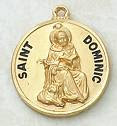Wednesday, April 4, 2007
Church History
So I dropped out of college with two and a half semesters left to earn a BSN degree in order to pursue a marriage (only God knows whether or not that was a good idea seeing as the marriage did not last). Now my life is beginning to settle down again and I am getting back on my feet and I thought about finishing a degree. I know I do not want a nursing degree as I previously sought, but where do I go from here? In examining my life and looking where I might be most useful and find a fulfilling endeavor I thought about a major in history with a minor in philosophy. Then I thought if I am going to major in history I would love to specialize in the history of the Church if I continue my education. Now that involves a lot of work! I would imagine you need a firm command of Latin, Greek and Hebrew just to start, then look at the history of Israel, Greece, Italy, Germany, France, Spain, England, Russia, North Africa, the US, and where else? I would imagine to really appreciate it all you need more than the rudiments of anthropology. But then what do you do with all that information? I have no idea what historians do besides teach. Writing books is not something I would like to depend on as a source of income. So, now I have found something I could really dig into with all my enthusiasm, but I have no idea what to do afterwards with it! If anyone knows what historians do with their degrees or if anyone wants to chat about history or just have your opinion heard, I would love to hear what you have to say.
Subscribe to:
Post Comments (Atom)





2 comments:
I think that getting a degree in history would be great. If I had the time and money, I would do it myself. Be careful when you actually start a program. There is a nasty little twist in the word "History".
"History" is actually two different things. There is History as Science, and History as Philosophy.
History as Science studies and evaluates the record of things and peoples of the past. The emphasis here is on the record, not the person place, or event. The major field of study is called "Documentary Evidence". In this area of study, the documents that support the occurance of an event are studied and evaluated as to thier relivance and trustworthiness. For instance, a document that was written by an eye witness, at the time of the occurrence, or close to the time of the occurrence is considered to have the highest credibility. Documents written after the occurence, by someone other than an eye witness have less credibility. But, this is not just a simple sliding scale. Documentarians (that's what they call themselves) offer cultural, economic, and political revelancy factors in the evaluation of the document. This has some validity. Gibbons had a very public low opinion of the Byzantine part of the Roman Empire, and his opinion showed in his famous work, "The Decline and Fall of the Roman Empire". Over the last one hundred years or so in the West, this documentarian commentary has taken a vigorous anti-Christian tone. Those of us who are over fifty years old, often, view this trend as a substantial "rewriting of history". I am one of those who hold that opinion. Remember the business about the trustworthiness of an eye witness account? In today's history as science view, that axiom dosn't apply to Matthew, John, Peter, James or Peter. Also, when ancient Christian documents are discovered and verified (in our time) they are dismissed, simply by ignoring them. A perfect example of this is the "Didache", the earliest Christian guide or Catechism written between 50 and 120 AD (definetly in the Apostolic Era) and discovered reciently (1883 AD). This document reveals the the early Church held the basic doctrines of todays Catholic communities. I had not even heard of this writing until several months ago, and I study Christian History, almost daily.
History as Philosophy differs in that the focus of this branch studies the effects that people and events have on human culture.
I'll comment more later. I've suddenly gotten tired.
Thank you Lowtec for your comment, and I look forward to continuing a conversation about this matter. I must agree with you in your observation of the antichristian bias in popular culture. Someone I know and who's opinions I hold in high regard says frequently that Europe is in a post-christian era and under heavy attack in America today. I know that we are somewhat insulated by two small bodies of water, but I still wonder, how long will it take for this to reach America? We surely must do all we can to prevent that from happening. First we must stop allowing our public education system from indoctrinating our young ones into a relativistic, "What is Truth?" mindset.
Post a Comment